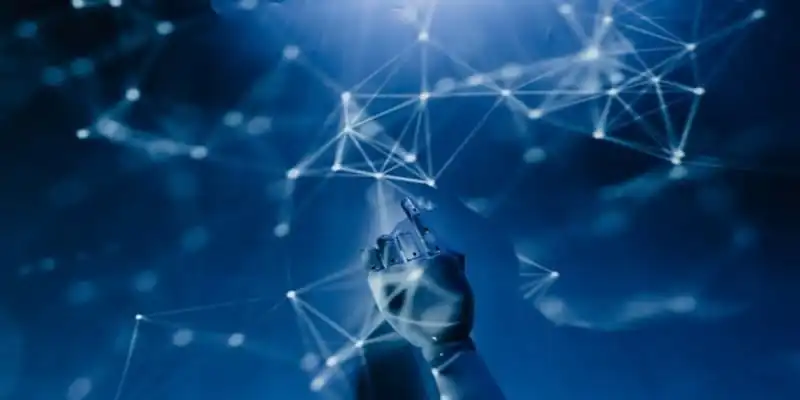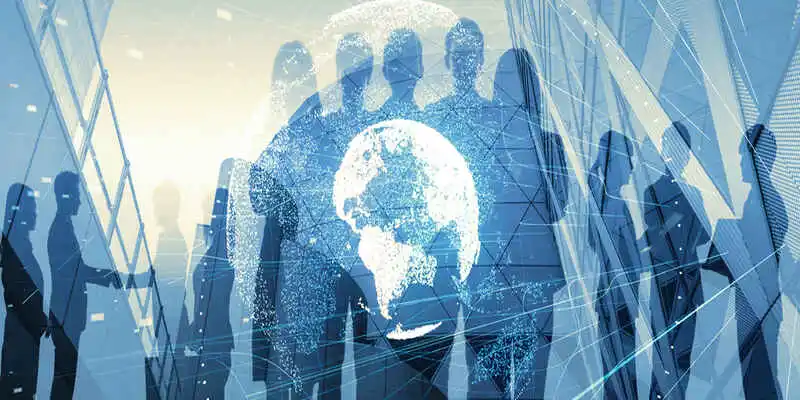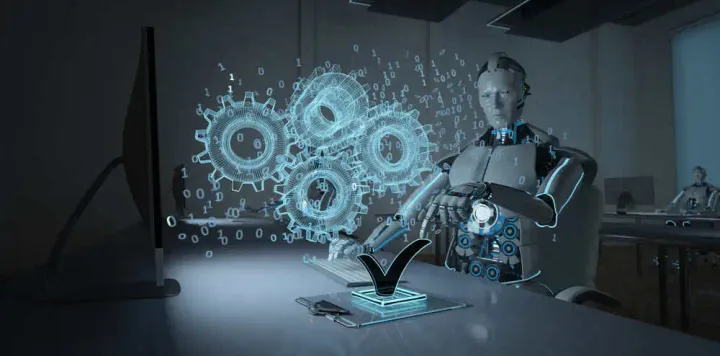AI vs. Human Intelligence: Can AI Surpass Human Intelligence?
AI vs. Human intelligence is an immense debate in which AI excels at accurately processing vast amounts of data. Human intelligence is superior in creativity and social interactions, and machine learning should be preferred as a tool to supplement human intelligence rather than its replacement.
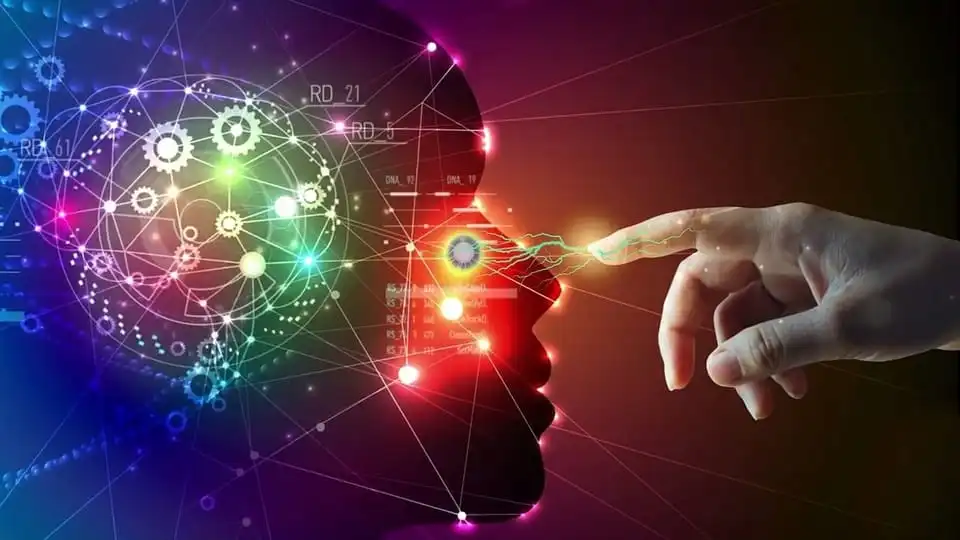
We are breathing in a world where the actual concept of intelligence is often undertaken as a supernatural power to improve decision-making and better life. “Intelligence” means the ability to gain information from the environment, understand the concepts based on creativity plus reasoning, and then retain that information as a piece of knowledge to adapt certain behaviors within the contexts or surroundings. Nowadays, with the evolution in the field of technology, we hear enormously about Artificial intelligence and its match with human brain power.
According to the world economic forum, 60% of people claim that AI will change their lives in the next few years. So, people are much more interested in knowing whether AI will replace Homo sapiens or not? This crucial debate in the current era sparks a dialogue between people as AI vs. Human intelligence. We are aware that Artificial intelligence (AI) is the art of designing computers to perform tasks in humanoid behavior, so the biggest fear regarding the use of AI is its susceptibility to complete human replacement over time.
To understand the core chemistry of AI vs. Human intelligence, let's head on toward explaining this critical deliberation.
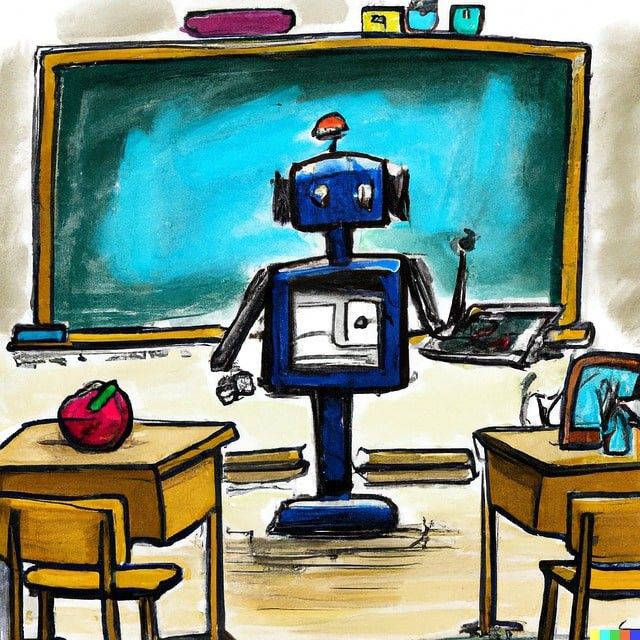
Definition and Birth of Artificial Intelligence (AI)
Kay Firth-Butterfield, the head of machine learning and artificial intelligence at the World Economic Forum, believed that "if someone is trusting AI for implementation, then he/she must have enough knowledge about AI, its functions, and impacts as well ."So we have to understand its actual definition first, which is as follows;
“Artificial intelligence is the branch of data science that performs certain tasks through well-trained machines exclusively linked with intelligent beings."
This term was coined by John McCarthy in 1956. He organized a conference termed as "Dartmouth summer research project on Artificial Intelligence," which led to the creation of deep learning and machine learning and ultimately opened the door to the field of high-class data science. The performance of AI is greatly associated with mimicking Human-like characteristics such as; reasoning and logic, learning from previous experiences, and the ability to perform tasks confidently. The use of AI is becoming so fast in businesses, the healthcare domain, and the broadcasting industry for undertaking better work and getting befitting results to create success.

Human Intelligence/Intellect
Human intelligence/intellect refers to the mental/cognitive capability of attaining knowledge marked by critical observations, logical reasoning, and Self-awareness followed by past experiences. It can solve complex problems, adapt to new environments and ambiances, learn through facts, and influence surroundings using that wisdom and creativity. Human creativity encompasses diverse knowledge and aptitude based on particular subjects. So human intelligence is all about interactive influences that vary from the range of interests.
Biological Relatability Between (AI) vs. Human intelligence
First and foremost, AI and human intelligence should be compared on biological terms to understand the idea of their comparison. As we know, neurons are the brain's main pillars to work, and they have the charge to transmit information from one nerve cell to another. In the human case, the information is transmitted through electrical signals powered by neural axons to act.
In Artificial intelligence (AI), ANN (Artificial Neural Networks) are designed based on artificial neurons, which help process information like human brains. These artificial networks are mainly inspired by biological neural networks (BNN). The specific purpose of Artificial Neural Networks is to help computers perform specific tasks such as image recognition, solving complex problems, and competently summarizing data.
Similarities Between AI and Human Intelligence
There are certain similarities between AI and human intelligence which are worth considering:
- AI and HI can store a large amount of memory in their respective areas as AI stores an enormous amount of data in the computer's memory, while humans store information in the brain.
- Both AI and HI can recognize patterns regarding data, which are beneficial for certain tasks such as Speech or image classification.
- Both AI and HI can solve multifaceted problems by using their respective approaches.
- Both AI and HI can understand language and communicate. As AI systems use the NLP technique (Natural language processing) for generating Speech, humans can respond to even non-verbal cues.
Side-by-Side Comparison Amidst AI vs. Human Intelligence
Here’s a direct contrast between AI and human intelligence in corresponding fields:
- Universal analysis: Humans can manage multiple skills throughout their lives, whereas AI can perform a few tasks at a time.
- State: Machines operate digitally, whereas the human brain works analogically.
- Energy sustainability: 25 Watts of energy is consumed by the human brain to perform the function; on the contrary, AI machines need 2 Watts of energy for their learning mechanism.
- Decision-making power: When AI competes with human intelligence, humans can make informed decisions on the basis of past scenarios. While most advanced Robotics can't make decisions according to past events; rather, they only respond according to the trained data.
- Multi-Tasking nature: humans can perform multiple tasks simultaneously, while machines can perform one.
Artificial Intelligence (AI) vs. Human Intelligence: A Deep Comparative Analysis
We know that AI and humans are equated on a broader level, so let's dig into their deep comparison.
Areas Where Human Intelligence Outperforms AI
1. Learning ability
Both AI and humans can learn and improve their skills over time. AI systems/robotics are typically designed to learn through data and analysis on which they are trained. They cannot comprehend the concept of Action and reaction because they lack sensibility. Humans, conversely, have unique thought processes. They can socially interact with one another regarding learning, educating, and gaining experiences, and they can absorb learned information to use it with rational thinking.
2. Creativity and innovation
AI systems can perform routine tasks more efficiently because of pre-planned rules and algorithms. But, they cannot be creative and innovative while performing tasks. On the other hand, humans can be highly innovative and creative by thinking outside the box by instilling unique and original ideas that can change the world. For example, humans can design artwork that induces emotions and inspires others. At the same time, an AI system lacks the ability to be creative and thus generate art based on previously trained data.
3. Ethics and bias
AI algorithms can only make decisions according to the taught data. They don't have a sense of ethics or morality, often leading to biased decision-making. Decision biases cause serious consequences, such as social inequalities and discriminatory decisions. Humans, in contrast, are more capable of making ethical decisions based on the sensitivity of the matter, and they have a moral extent that guides their behaviors. So they are not susceptible to biases, which influence them in decision-making. For example, a human can judge the pros and cons of a certain decision and its possible impacts on others. However, an AI system only follows its programmed data for quick decisions despite its little apprehensions.
4. Reasoning ability
Humans can reason and conclude even from incomplete information, while, as mentioned above, AI algorithms can only perform tasks by already stuffed data. For example, a human can observe a person's happiness or sadness based on facial expressions, body language, or voice tone and ultimately draw a conclusion built on inadequate information. Conversely, AI systems lack the reasoning or common sense to think in such a manner.
5. Emotional intelligence
Emotional intelligence is an important aspect of human intelligence, and it allows humans to navigate their social interactions by understanding and regulating their emotions. While AI systems, on the other hand, lacks the capability of truly understanding and experiencing sentiments in the same way as Human do. For example, there are a lot of ethical repercussions related to the use of AI in customer services and mental health care, where human intervention is very important to understand people's emotions, which AI lacks in an emotionally charged context.
6. Adaption and flexibility
Humans have certain cognitive abilities that help them adapt to their surroundings, and they are more flexible in learning and directing a broad range of abilities. In contradistinction, AI Algorithms need sufficient time to adjust and respond according to new situations. For instance, Humans can better use their problem-solving skills and experiences to cope with new situations. Still, AI systems have certain limitations because they need a bulk amount of struggle to manage tasks outside their domain.

Areas Where AI Outperforms Human Intelligence
In the AI vs. human intelligence debate, one of the significant features of Artificial intelligence is its ability to process an enormous amount of data precisely and accurately. AI Algorithms are typically designed to analyze data in real time, making them ideal for fraud detection, weather forecasting, and medical diagnosis. On the contrary, Human accuracy depends on several factors ranging from attention to cognitive ability, so they are comparatively slow in processing.
Following are the areas in which AI is enormously ensuring success;
1. Video gaming
Video gaming is where Artificial neural networks (ANN) prove that they have exceeded the mark of human intelligence. If anyone does not know, then Deep Mind's AlphaGo and IBM’s Deep Blue are getting global world recognition after beating world champions in chess and Go. The main purpose of a deep learning community is to train computers at a level where they can easily beat humans in every possible game. These games include; the World of Warcraft, Doom, and Space Invader.
For example, by teaching computers, researchers apply deep Q-learning techniques to play Atari’s Breakout game. In this technique, computers are not pre-programmed to play games; they are given the full keyboard charge by tracking the score. By doing so, the computer will automatically learn the procedure, and after one to two hours of playing, the computer becomes proficient in the pertinent game.
2. Voice synthesis and recognition
Another use case in surpassing AI over human intelligence is synthesizing and recognizing voices/speeches. In previous years deep learning networks named: Deep Speech, released by Baidu, and WaveNet, released by Google, were launched to generate automatic voice. These systems are exclusively designed to mimic human voices and improve themselves. They are perfect in such a manner that it's much hard to differentiate between real and artificial voices. Furthermore, LipNet deep network created by Oxford and Google DeepMind scientists has succeeded by up to 93% by reading people's lips. In contrast, human lip readers' success score/percentage is only 52%.
Example:
The University of Washington uses the lip-syncing technique to synthesize audio-video conversion.

Human Intelligence vs. AI: Interrogation of the Better One
Above, we study a deep comparative analysis of how AI competes with human intelligence and vice versa. So it’s not productive or accurate to compare both of them on the basis of better and worse. It's valid that both are fundamentally different and serve different purposes when it comes to AI vs. human intelligence. AI is designed to perform specific tasks using algorithmic models and computational analysis. In comparison, human intelligence results from millions of years of evolution which is more general, creative, flexible, and able to reason and understand.
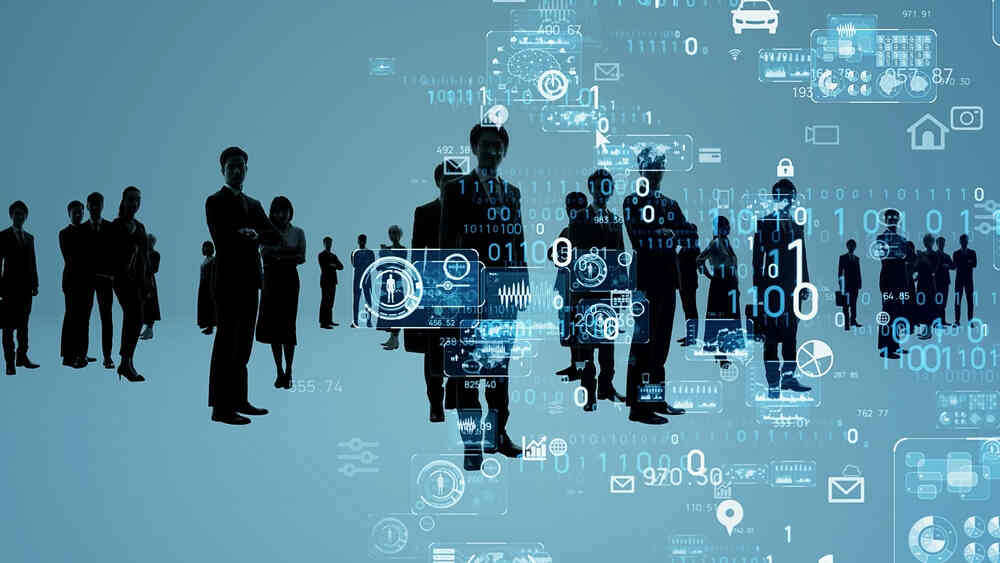
In some areas, AI overtakes humans, such as performing tasks with high speed and accuracy, responding to the high amount of data and pattern recognitions that humans may often miss. Nonetheless, AI is still struggling with tasks that come naturally to humans, such as creativity, empathy, morality and ethics, and social skills. Overall, AI and human intelligence have their potential strengths and limitations, and it's good to complement them in various ways. Therefore it is not a matter of which one is better or more valuable but how both can fit together for a better life and decision-making.
“To be a “human” means someone with specific life history and peculiarities. The line amongst intelligent machines and people blurs when a puree is made of that uniqueness.”
Future Hold for AI vs. Human Intelligence
AI is progressing day by day. Today, we see it in various forms, from personal assistants like Alexa and Siri to self-driving cars and facial recognition technology. But the time required to train AI models is far high, which is never possible without the "human” factor. Currently, the leading AI technology is automation which is rapidly displacing jobs. Stats show that by 2022 AI will replace up to 75 million jobs and expose the doors for around 133 million new jobs, including specialized skills in mathematics, statistics, data science, software engineering, and programming.
So, there will be a dynamic interaction between AI vs. human intelligence in the future so far. AI will continue to make modifications like work and lives; human intelligence will remain the most crucial and valuable factor ever on the creative side.
Summing Up
The field of AI is evolving quickly and has the potential to revolutionize many aspects of society, such as health, medical diagnosis, and education. However, the debate over its impact on human intelligence and employment is ongoing. At the same time, some experts believe that AI could enhance human intelligence and employment other than the risks of automation and job loss.
Overall, when AI compares to human intelligence, both have their strengths and limitations. Regardless of the outcome of this debate, it’s clear that the human factor will remain a crucial element, and AI will continue to play a significant part in shaping the future of society.

